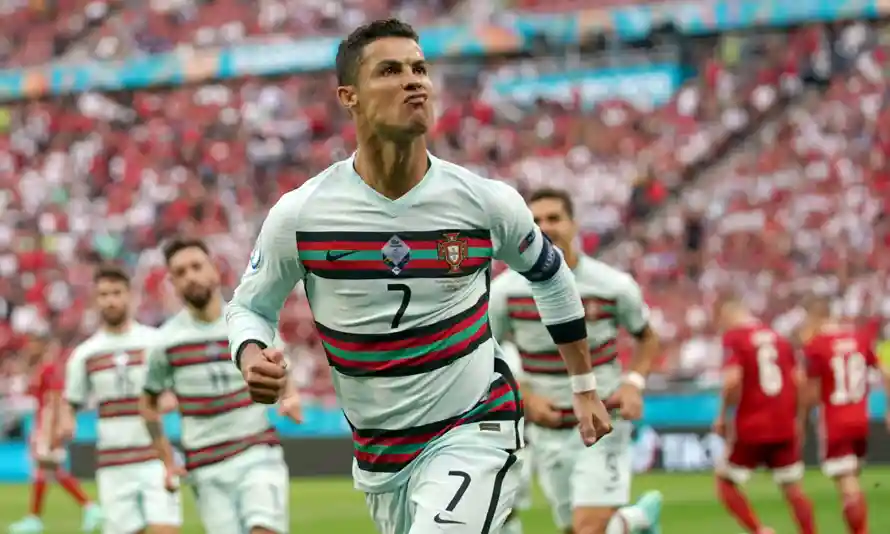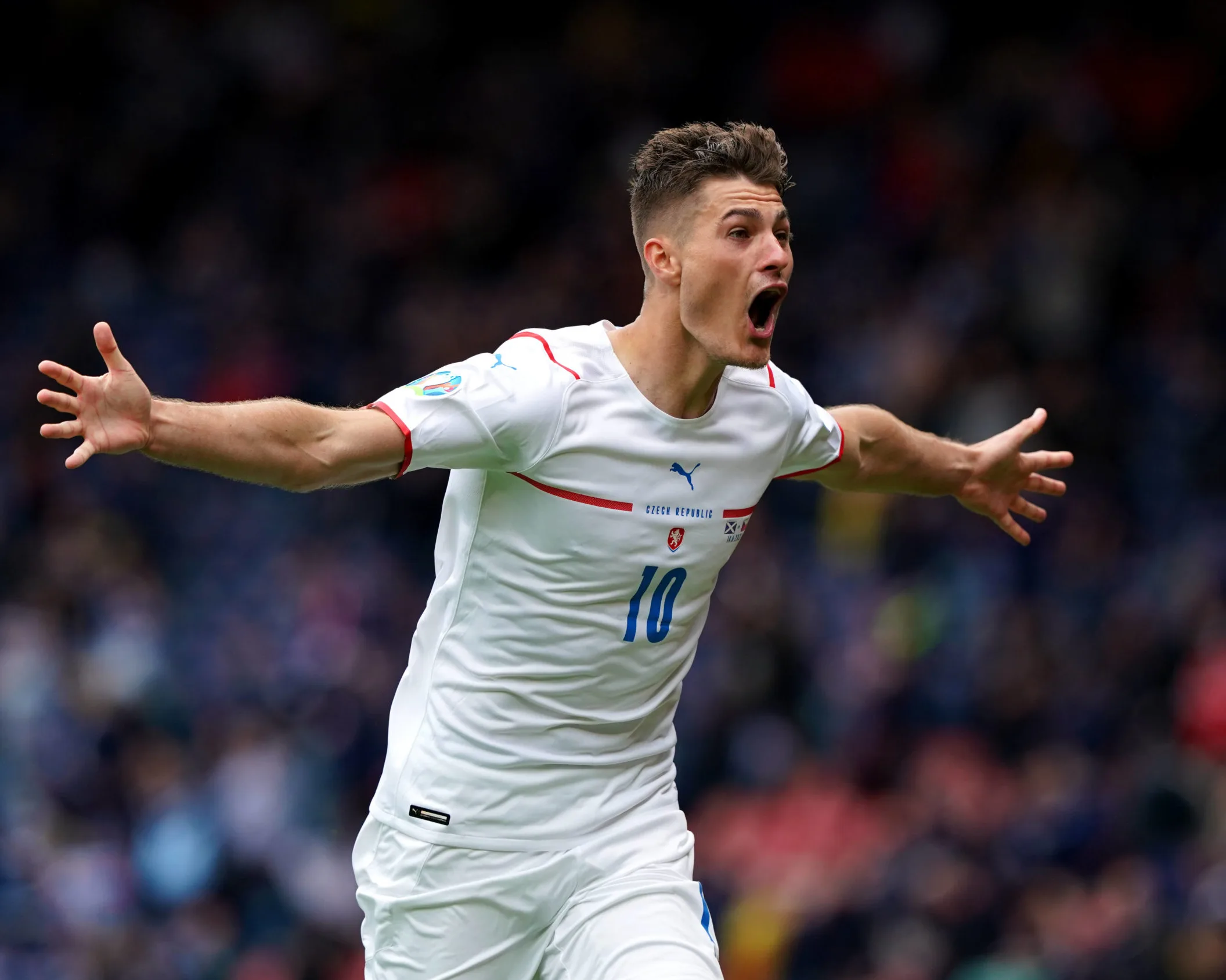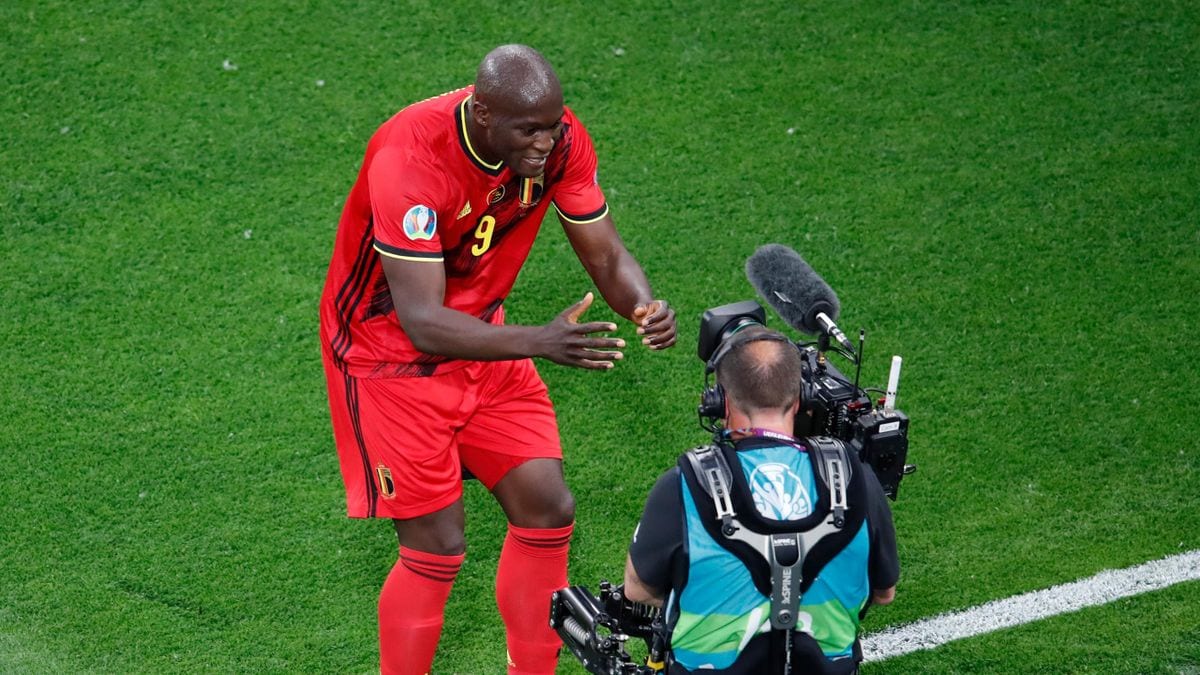
The UEFA Euros are underway! Here’s what we saw on Matchday 1.
It may be a year later than planned, but the UEFA European Championships – the second-largest tournament in world football – is underway. This highly anticipated edition of the European continental championship is being held in 11 host cities across the continent in celebration of the competition’s 60th birthday.
Aside from the World Cup, there is no competition in world football more prestigious. Europe is the epicentre of world football and a hotbed of incredible talent. To be crowned champions of this continent is the ultimate achievement. Some argue that it is harder to win the European Championships than the World Cup simply because of the high concentration of quality teams in the Europe-only tournament.
And Matchday One in Europe certainly didn’t disappoint. What it did do was shock the world – in some magnificent ways and some incredibly traumatic ones.
Here’s what we know so far after all 24 teams played their first games of Euro 2020.
The Contenders
Before a European Championship, it’s rarely possible to predict exactly who will stand up to the challenge and give themselves a shot at the title. Europe features such depth of quality that there are, at any time, at least a dozen teams capable of being champions, and probably another dozen who could be dark horses with a little bit of luck.
But Matchday One gave us an early look at who is going to stake their claim at the continental title.
Italy set a very high benchmark in the very first game of the tournament, waltzing past a highly-fancied Turkish side by 3 goals to nil. Rebounding from the devastating national embarrassment of failing to qualify for the World Cup in 2018, the Italians are now unbeaten in 28 games under coach Roberto Mancini. Their opener in front of a home crowd in Rome was a classy performance. Turkey was played off the park, and although Italy took some time to break through, goals for Ciro Immobile and Lorenzo Insigne, as well as an own-goal from Merih Demiral, saw a result that made Italy clear favourites to top Group A.
Another highly-fancied side going into the tournament are world number one Belgium, who put in an equally dominant performance in St Petersburg. On a night that rocked the football world for different reasons (more on that later), Romelu Lukaku scored two goals as Belgium breezed past hosts Russia 3-0. This Belgian side looks full of confidence and flair, and any side will face a lot of difficulties in getting past them.
Reigning champions Portugal struggled to get off the mark against a resilient Hungary in Budapest, but there was no denying Cristiano Ronaldo in the end, who scored two late goals to secure a 3-0 victory and the record as the highest scorer in Euro history. In the other game in that group – the incredibly daunting Group F – world champions France were very impressive as they picked up a valuable 3 points against Germany in Munich. Any team that makes it through that group is capable of going all the way, and their battle for the top spot in the group is guaranteed to be intense.
The other fancied sides who got wins to begin their campaigns included England, who beat Croatia 1-0 in a replay of 2018’s World Cup semi-final, and the Netherlands, who returned to tournaments for the first time since 2014 with a thrilling 3-2 win over Ukraine.
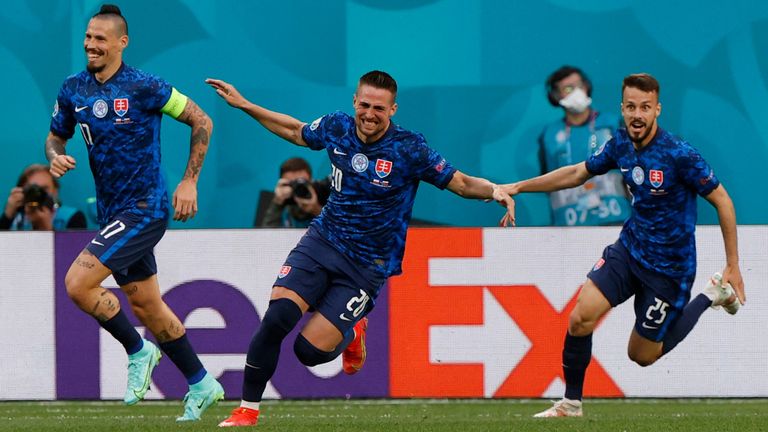
The Surprise Packages
Not every result on Matchday One went the way we expected. Some smaller teams managed to get results that will seriously put them into the mix as a team to watch.
The first team that springs to mind is Finland. Making their debut in major international tournaments against Scandinavian neighbours Denmark, it was no small achievement for them to come away with a shock 1-0 win. While that game was marred by tragedy (again, more on that later), there needs to be recognition of the incredible achievement of the Finnish team, who now put themselves in a prime position to make the knockout stages with a result against a struggling Russian team on Matchday Two. Joel Pohjanpalo’s goal for the Finnish was their first in tournament history, and it’s unfortunate that the circumstances didn’t allow for that to be celebrated as it should be.
There was also a surprising win for Slovakia, who managed to grab a win over the highly-fancied Poland and their talismanic striker Robert Lewandowski. Lewandowski was quiet as Slovakia sealed a 2-1 victory, a very important three points in a tough group that also features Spain and Sweden. The Slovakians looked the stronger side throughout the game, so don’t rule out the possibility of them getting further points from the group.
Those were the only true upset victories of the first matchday, but there were also positive performances from North Macedonia, who also scored their first major tournament goal in a 3-1 loss to Austria; Ukraine, who almost managed to stage a comeback in what was the game of the week against the Netherlands; and the Czech Republic, who won a difficult-to-call match against Scotland in stunning style.
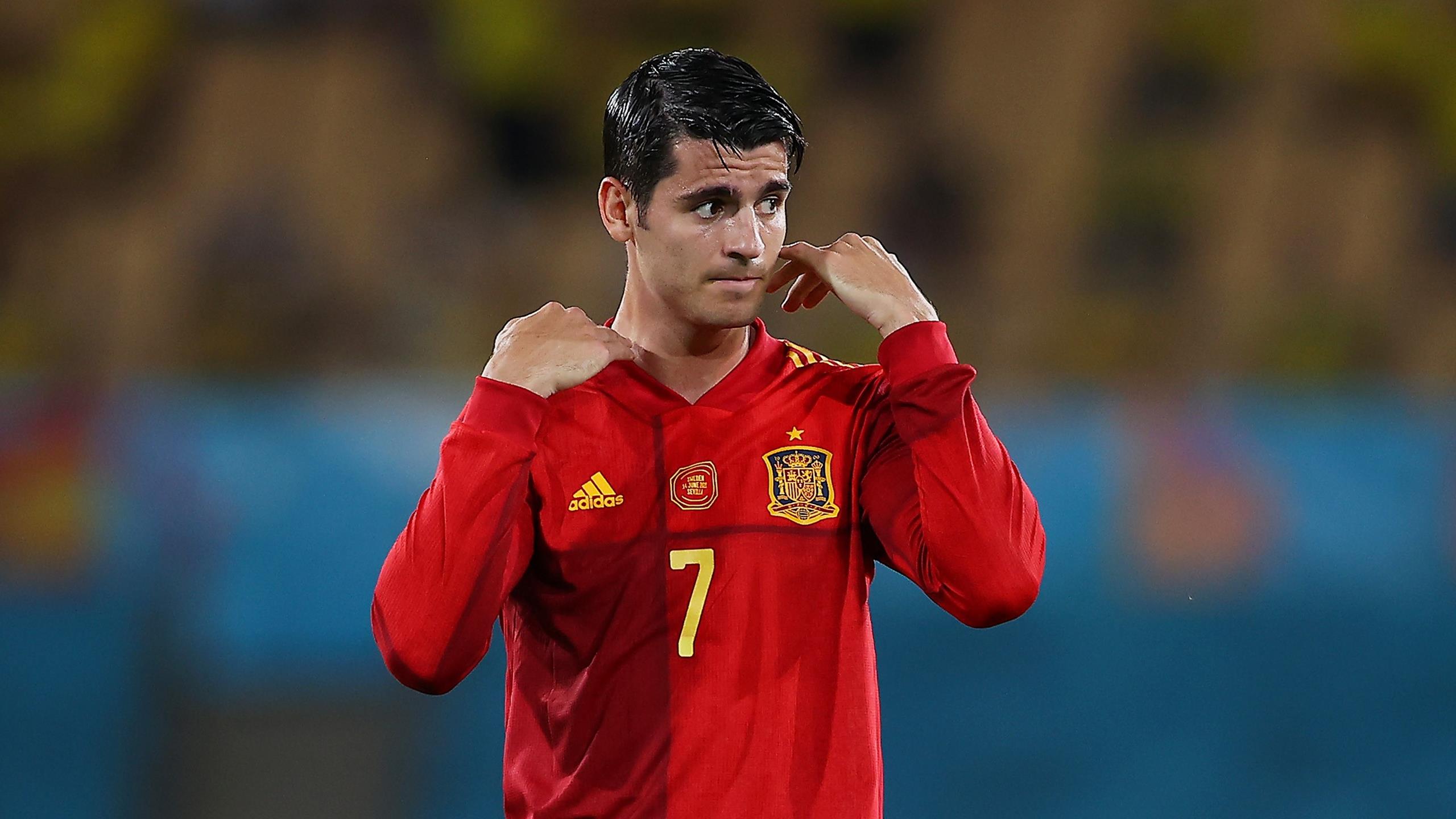
The Disappointments
At the other end of the scale were the big guns that failed to fire on the first day of the tournament.
We already mentioned the Polish, who now face a gargantuan task to get through a difficult group after failing to pick up three points in their must-win clash with group outsiders Slovakia.
Germany also failed to get off the mark, albeit against much more challenging opponents, losing 1-0 to France on home soil. The Germans didn’t look entirely beaten in that game though, so expect them to come back firing in their next two group games against Portugal and Hungary.
The only other true disappointments of the first day were Spain, who were denied a win against Sweden in what must be one of the strangest games in Euro history. A true statistical anomaly in Seville, La Roja managed to hold 86% – that’s right, EIGHTY-SIX PERCENT of possession against the Swedes, but failed to convert that dominance into goals as the game finished 0-0. It comes after a period of turmoil for the Spanish team, with positive COVID tests resulting in the senior squad being broken up and not playing a single friendly match together to prepare for the tournament. I expect them to continue to struggle, especially in attack – striker Alvaro Morata was absolutely notorious in front of goal.
The Highlights
Euro 2020 has already established itself as a tournament that will go down in history – and for some definite good reasons as well as the headline-making bad ones.
There have already been two absolutely world-class goals that will be contenders for Goal of the Tournament. The first came in the stunning clash between the Netherlands and Ukraine in Amsterdam, as Ukraine staged a comeback from 2-0 down to push the Netherlands until the final whistle. Ukraine’s first goal was a sublime curled effort into the top corner from Andriy Yarmolenko, leaving veteran goalkeeper Maarten Stekelenburg absolutely no chance. Catch the jaw-dropping effort below.
That game proved to be the best so far, as the Dutch held off an incredible Ukrainian comeback to win 3-2 at home.
The second goal, however, was a record-breaker in Glasgow. Czech Republic striker Patrik Schick caught Scottish goalkeeper David Marshall off his line with a 51-metre curling effort on goal, setting the record for the most distant goal scored in a European Championship. This one has to be seen to be believed, and the wonderful commentary (as well as the looks of pure disbelief from the Scottish fans) make it a moment no football fan will ever forget.
While those were the two standouts, there was also an excellent team goal for Cristiano Ronaldo against Hungary, a superb volley for Stefan Lainer against North Macedonia, a sumptuous placed shot from Lorenzo Insigne against Turkey and a belter of a strike from Milan Skriniar against Poland. Dig into the highlights on YouTube, because there is some wonderful football being played in Europe.
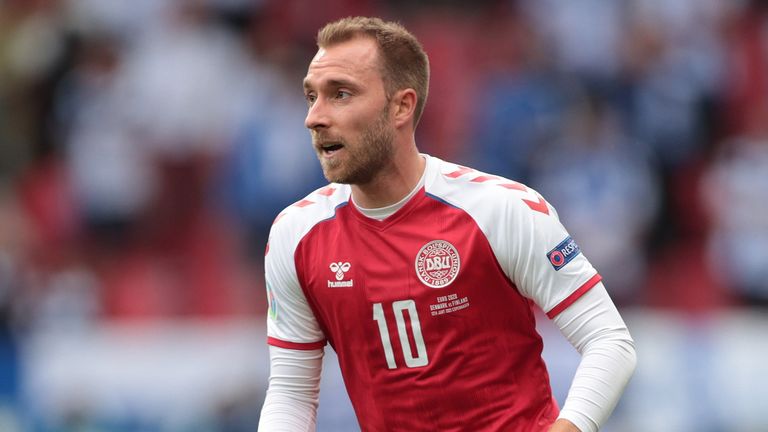
The (Very, Very, VERY) Low-Lights
Of course, we can’t sum up Matchday One of UEFA Euro 2020 without mention of Danish superstar Christian Eriksen. The clash between Denmark and Finland in Copenhagen was marred by what football fans are describing as some of the most haunting and bone-chilling moments in the history of the sport as Eriksen inexplicably collapsed 42 minutes into the game.
In what had been a tense, scoreless affair to that point, Eriksen had unsurprisingly been the standout performer for Denmark, looking like a genuine threat of creating a scoring opportunity for the Danes. But when he slumped face-first to the turf without an opponent near him late in the first half, it was very quickly evident that something was very, very wrong.
As a football fan watching and enjoying the game up until that point, I have never felt my blood go cold as quickly as it did in those few seconds, as Eriksen glazed over and fell to the pitch, followed by a frantic and urgent call for help to the sidelines from his teammates and opponents. The next 15 minutes (during which, for some inexplicable reason, the broadcast directors thought it appropriate to keep rolling through their camera angles) were very difficult to watch, as Eriksen received CPR on the pitch as his distraught teammates shielded him from view of the spectators and cameras. The footballing world was glued to their screens, collectively praying.
Eriksen is now okay and recovering in hospital after what has been confirmed as a cardiac arrest.
There has been a great deal of controversy over the handling of the situation by broadcasters and UEFA, but I won’t focus on that here. The important thing is that Eriksen is awake, well and recovering.
But mention should also be given to the heroes on the pitch that day. Recognition simply must be given to English referee Anthony Taylor, who took only 5 seconds after Eriksen’s collapse to stop the game and call for medical assistance. His quick thinking undoubtedly saved Eriksen’s life.
Danish captain Simon Kjaer is also being hailed as a hero, and rumour is that he is set to be given the captaincy at his club, AC Milan, in recognition of the incredible leadership he showed in harrowing circumstances for Denmark. Kjaer was one of the first to Eriksen’s side, preventing the playmaker from swallowing his tongue and commencing CPR before instructing his players to shield Eriksen from the cameras and comforting Eriksen’s distraught wife on the pitch.
While I personally believe Taylor and Kjaer should be honoured in some way for what they did individually, I must say that I was impressed by the response of every single person in the stadium that day. The Danish players responded rapidly to assist, the referee and medical staff were so quick to the scene, the Finnish opposition helped in any way they could and later refused to celebrate their winning goal out of respect for the Danish players and fans, and even the crowd, while the game was temporarily suspended due to the medical emergency, unified in a chant – the Finnish side of the stadium chanting “Christian” and the Danes responding “Eriksen”. This was a moment that showed the human heart of the sport.
Of course, our well-wishes go out to Christian and his family for a speedy recovery. The footballing world is united behind a well-loved and extremely talented player.
So, UEFA Euro 2020 is underway! Who do you think will go all the way? What further surprises do the coming games have in store? And who was the standout player from Game One? We’d love to hear your thoughts!
Check out the summary of all the results and all the upcoming games on Matchday Two below.
Matchday One results
Group A:
Italy 3 (Demiral [og] 53, Immobile 66′, Insigne 79′), Turkey 0.
Wales 1 (Moore 74′), Switzerland 1 (Embolo 49′).
Group B:
Denmark 0, Finland 1 (Pohjanpalo 60′).
Belgium 3 (Lukaku 10′ 88′, Meunier 34′), Russia 0.
Group C:
Austria 3 (Lainer 18′, Gregoritsch 78′, Arnautovic 89′), North Macedonia 1 (Pandev 28′).
Netherlands 3 (Wijnaldum 52′, Weghorst 58′, Dumfries 85′), Ukraine 2 (Yarmolenko 75′, Yaremchuk 79′).
Group D:
England 1 (Sterling 57′), Croatia 0.
Scotland 0, Czech Republic 2 (Schick 42′ 52′).
Group E:
Poland 1 (Linetty 46′), Slovakia 2 (Szczesny [og] 18′, Skriniar 69′).
Spain 0, Sweden 0.
Group F:
Hungary 0, Portugal 3 (Guerreiro 84′, Ronaldo 87′ 90+2′).
France 1 (Hummels [og] 20′), Germany 0.
Matchday Two fixtures
Group A:
Turkey vs Wales in Baku (Thursday 2am AEST)
Italy vs Switzerland in Rome (Thursday 5am AEST)
Group B:
Finland vs Russia in St Petersburg (Wednesday 11pm AEST)
Denmark vs Belgium in Copenhagen (Friday 2am AEST)
Group C:
Ukraine vs North Macedonia in Bucharest (Thursday 11pm AEST)
Netherlands vs Austria in Amsterdam (Friday 5am AEST)
Group D:
Croatia vs Czech Republic in Glasgow (Saturday 2am AEST)
England vs Scotland in London (Saturday 5am AEST)
Group E:
Sweden vs Slovakia in St Petersburg (Friday 11pm AEST)
Spain vs Poland in Seville (Sunday 5am AEST)
Group F:
Hungary vs France in Budapest (Saturday 11pm AEST)
Portugal vs Germany in Munich (Sunday 2am AEST)
All games are shown live on Optus Sport.


